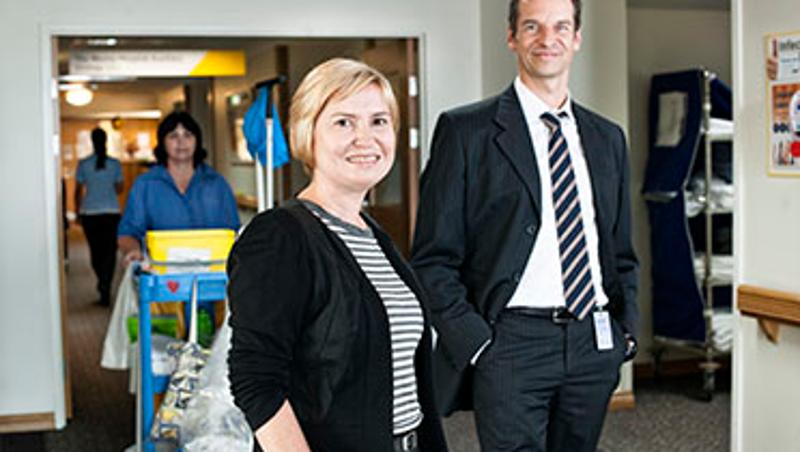
Hospitals are presumed to be squeaky clean, but new research will find out which techniques work best to reduce the spread of infection.
QUT Adjunct Professor and The Wesley Research Institute CEO, Professor Christian Gericke, said the REACH - Researching Effective Approaches to Cleaning in Hospitals - program would determine whether a new "bundle" approach to hospital cleaning, including education, training and empowerment for cleaning staff, is a cost-effective way to reduce the transmission of infections via surfaces in hospitals.
Conducted through The Centre of Research Excellence in Reducing Healthcare Associated Infections, the project is funded by $646,817 from the NHMRC. The Wesley Research Institute is a major partner on the grant.
"This is an exciting and truly innovative research project," Professor Gericke said.
"Hospital cleaning is usually taken for granted but it is invaluable in preventing hospital-acquired infections. Therefore trialling the best way to clean a hospital is as valuable as trialling new medical technologies."
QUT Senior Research Fellow Dr Lisa Hall said there are 200,000 healthcare-associated infections in Australian acute healthcare facilities each year, the most common complication affecting patients in hospital. Cutting the rate of infection would save millions of dollars in healthcare every year, and free up more hospital beds, Dr Hall said.
"We really don't know what is the best way to clean a hospital," Dr Hall said.
"There is a lot of documentation and literature out there that show some things work and some don't, and there are quite a few recommendations in the national guidelines for cleaning. But how to translate that information into getting cleaner hospitals and fewer infections is still unknown.
"So instead of saying to cleaners `Here's 40 pages of guidelines, go clean', we will be able to say `Here's five or six things, these are the core principles'. It will bring it back to basics."
Hospitals involved in the REACH project will have their cleaning methods analysed. A training program would then be tailored for each site, and the new cleaning methods monitored to gauge effectiveness, including costs.
A pilot program will begin in May at Logan Hospital, where this environmental cleaning bundle - a small set of key interventions - will be trialled.
"These interventions are core principles that are evidence based, but by ensuring that they are all done together, the outcome is greater than the sum of its parts," Dr Hall says.
"It works in the same way as wearing suncream, a hat, and sitting in the shade, gives better results at reducing skin cancer than each intervention occurring on their own.
"Cleaners play such an important role in hospitals, and we see this project as empowering them with more knowledge."
Media contact:
QUT Media, 07 3138 2361, media@qut.edu.au or after hours, 0407 585 901


